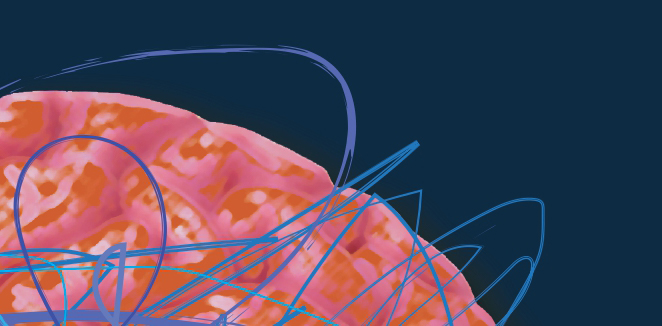FEM CERCLES, CUIDEM LES RELACIONS evaluation of the impact of the training on the global restorative approach aimed at educational teams of the Neighborhood Plan of the city of Barcelona
DOI:
https://doi.org/10.32093/ambits.vi55.5031Keywords:
School; evaluation; coexistence; restorative practices; teacher trainingAbstract
The training Fem Cercles, Cuidem les Relacions is a training in the whole school restorative apprach aimed at the educational teams of the Neighborhood Plan and carried out by the Emotional Support and Care Service. The aim of this article is to show the evaluation data of this training in terms of overall satisfaction, the change of perspective in relation to the management of relationships and conflict, and, finally, the transfer to classrooms and schools of proactive and responsive restorative processes. A post-training questionnaire was used to assess the impact of training on the professional environment and the change in mentality in relation to management of relationships and conflicts. 47 participants answered the questionnaire. In general, the results of the evaluation of the training show a high degree of satisfaction of the participants in relation to the training as well as a high degree of interest in its contents. The results also show a high level of transferability of the training contents to the classrooms including the practice of social and emotional skills as well as the methodologies included in the training. We expect the results of the evaluation of the training would allow having a strategy at the educational level aimed at improving cohesion and coexistence in the school classrooms and that it is reproducible and scalable.
References
Albertí, M. (2016). Cap a una escola justa. La incorporació de la justícia restaurativa en l'àmbit escolar (Tesi doctoral). Universitat Ramón Llull.
Albertí, M., i Zabala, O. (2018). L'enfocament restauratiu global. De la teoria a la pràctica. Desplegament pilot a l’Institut Salvador Seguí. Àmbits de Psicopedagogia i Orientació, 49, 91-111. Recuperat de https://www.raco.cat/index.php/AmbitsAAF/article/view/366276
Bevington, T.J. (2015). Appreciative evaluation of restorative approaches in schools. Pastoral Care in Education, 33(2), 105-115. doi: 10.1080/02643944.2015.1046475
Bowen, G.A. (2009). Document Analysis as a Qualitative Research Method. Qualitative Research Journal, 9(2), 27-40. doi: 10.3316/QRJ0902027
Brackett, M. A., Palomera, R.,Mojsa-Kaja, J., Reyes, M. R., i Salovey, P. (2010). Emotion-regulation ability, burnout, and job satisfaction among British secondary-schoolteachers. Psychology in the Schools, 47, 406-417. doi: 10.1002/pits.20478
Extremera, N., Fernández-Berrocal, P., i Durán Durán A. (2003). Inteligencia emocional y burnout en profesores. Encuentros en Psicología Social, 1, 260-265. Recuperat de https://emotional.intelligence.uma.es/documentos/PDF5burnout_en_profesores.pdf
Girós, R. i Collet, J. Avaluació del projecte “De l’equip docent a l’equip educatiu”. Barcelona: Ajuntament de Barcelona (Pla de Barris i Consorci d’Educació de Barcelona). Recuperat de https://www.edubcn.cat/rcs_gene/extra/01_documents_de_referencia/
informes/InformeAvaluacio_NousPerfilsProfessionals_maig2020.pdf
Gorostiza, G., Comas, M., Escoin, J., Vera, A., González Tavirai, Y., Esclapés, E., Cugat, M., i Albertí, M. (2019). Ocupar-se del benestar dels infants. Una prioritat dels equips de Pla de barris als centres educatius de la ciutat de Barcelona. Àmbits de Psicopedagogia i Orientació, 50(3), 156-172. Recuperat de https://www.raco.cat/index.php/AmbitsAAF/article/view/366242
Hopkins, B. (2004). Just Schools. A whole school approach to restorative justice. London: Jessica Kingsley Publishers.
Hopkins, B. (2017a). Restorative Classroom Practices. Restorative approaches in your day-to-day work. Berkshire, United Kingdom: Transforming Conflict and National Center for Restorative Justice in Youth Settings.
Hopkins, B. (2017b). Temps de cercle i reunions en cercle. Manual pràctic. Palma, Mallorca: Conselleria d’Educació i Universitat, Direcció General Innovació i Comunitat Educativa. Institut per la Convivència i l’Èxit Escolar.
Hsu, C., Phillips, W.R., Sherman, K.J., Hawkes, R. I Cherkin, D. (2008). Healing in primary care: a visions hared by patients, physicians, nurses and clinical staff. Annals of Family Medicine, 6, 307-314.
Mas-Expósito, L., Amador-Campos, J. A., Triay, M. i Lalucat-Jo, L. (2020). Avaluació de dos anys de funcionament d’un servei de suport i atenció emocional en centres educatius d’alta complexitat del Pla de Barris de la ciutat de Barcelona. Educació Social. Revista d’Intervenció Socioeducativa, 76, 214-230.
Pérez-Escoda, N., Filella, G., Alegre, A. i Bisquerra, R. (2012). Desarrollo de la competencia emocional de maestros y alumnos en contextos escolares. Electronic Journal of Research in Educational Psychology, 10(3), 1183-1208. Recuperat de http://ojs.ual.es/ojs/index.php/EJREP/article/view/1530/1862
Pomar, M. (2013). Las prácticas restaurativas en la formación inicial de maestros. Una Experiencia de aplicación. Revista Interuniversitaria de Formación del Profesorado, 76(27), 83-99. Recuperat de https://www.redalyc.org/articulo.oa?id=27430137006
Rodríguez Sanz, J.,Kurtz Luna, C. i Alvarez-Ude Cotera, F. (2011). Aspectos clave de la comunicación no verbal en la consulta. Formación Médica Continuada en Atención Primaria, 18(7), 401-409.
Rosenberg, M. B. (2017). Comunicación no violenta. Un lenguaje de vida. Madrid: Editorial Acanto S.A.
Thompson, F., & Smith, P. K. (2011). The use and effectiveness of anti-bullying strategies in schools. Research Report DFE-RR098. London: Department for Education.
Triliva, S., i Poulou, M. (2006). Greek Teachers’ Under standings and Constructions of What Constitutes Social and Emotional Learning. School Psychology International, 27(3), 315-338. doi:10.1177/0143034306067303

Downloads
Published
Issue
Section
License
The authors maintain their copyright and give the right to the first publication of the work to the journal, registered under a Creative Commons Attribution-Non Commercial-NoDerivs license. This license allows others to download the works and to share them with others as long as they credit the author, but it does not allow for any kind of modification or commercial use.














